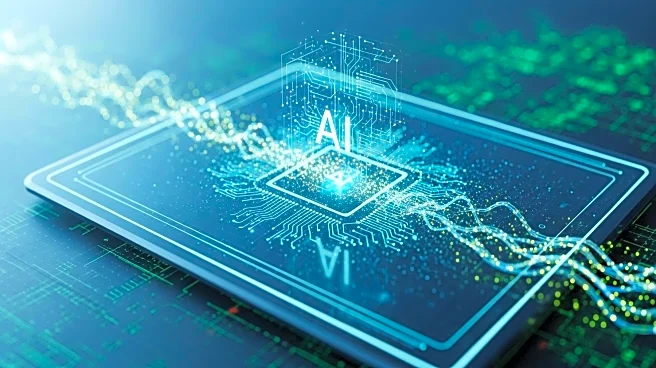What's Happening?
A significant shift is occurring in the marketing industry as around 79% of marketers have increased their spending on creator content that utilizes generative AI over the past year. This trend is driven by the perception that AI has made creator collaborations more cost-efficient, with 81% of marketers agreeing on this point. Additionally, 73% of marketers believe that content produced with generative AI performs better than traditional creator content. This increased investment is being redirected from traditional human-produced creator content and other marketing channels, with 77% of marketers planning to make such budget shifts in the next 12 months.
Why It's Important?
The adoption of generative AI in marketing represents a transformative shift in how content is created and consumed. By leveraging AI, marketers can achieve greater cost efficiency and potentially enhance the performance of their campaigns. This shift could lead to a reevaluation of marketing strategies across industries, impacting advertising budgets and the role of human creators. As AI continues to integrate into marketing practices, it may redefine the standards of content creation, influencing consumer preferences and industry norms.
What's Next?
As marketers continue to invest in AI-powered content, the industry may see further advancements in AI technology and its applications in marketing. Companies might explore new ways to integrate AI into their strategies, potentially leading to innovative content formats and collaborations. However, the growing consumer skepticism towards AI-powered content could prompt marketers to address concerns about authenticity and engagement. The balance between AI efficiency and consumer trust will likely shape future marketing approaches.
Beyond the Headlines
The rise of AI in marketing raises ethical considerations regarding the transparency and authenticity of content. As AI-generated content becomes more prevalent, marketers may need to navigate issues related to data privacy, intellectual property, and the potential displacement of human creators. The long-term implications of AI in marketing could influence cultural perceptions of creativity and originality, prompting discussions about the role of technology in shaping human experiences.










